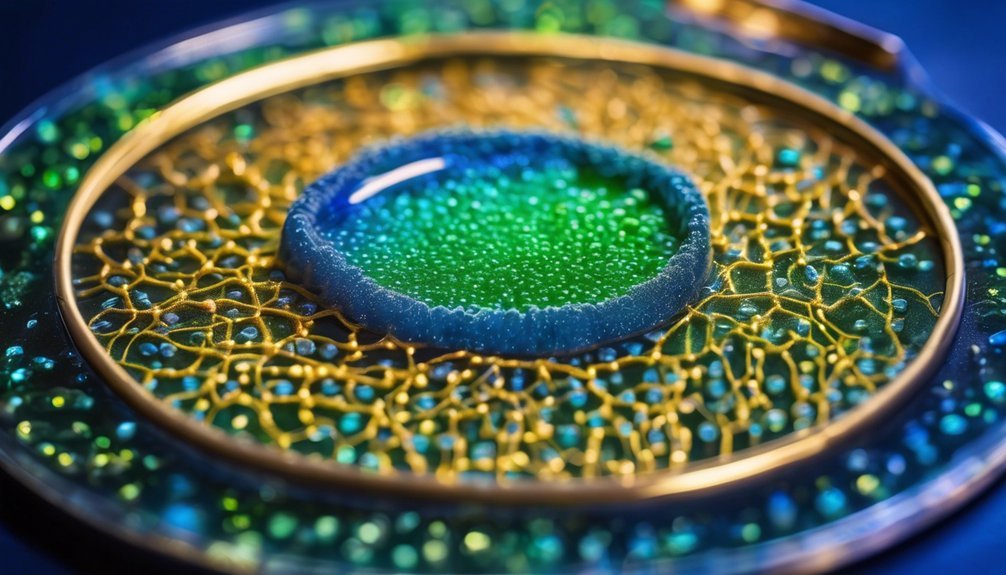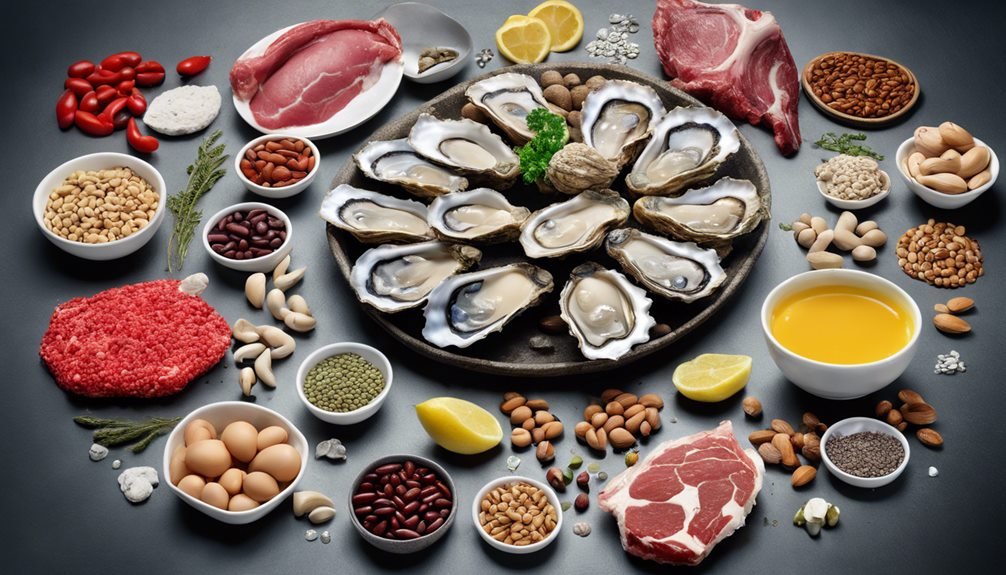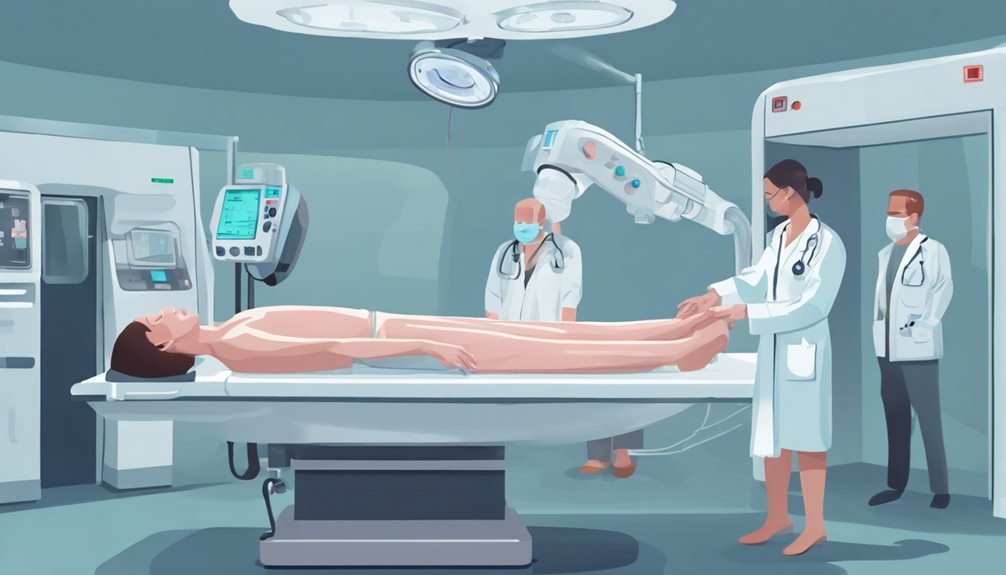The P-glycoprotein pump plays a crucial role in mediating multidrug resistance, actively expelling vital chemotherapy agents and ivermectin from cells. This mechanism not only complicates treatment for resistant cancers but also diminishes the effectiveness of antiparasitic therapies. Understanding how to counteract this pump could be key in improving therapeutic outcomes. What strategies might emerge to enhance drug efficacy and navigate the challenges posed by P-gp?
Key Takeaways
- P-glycoprotein (P-gp) actively expels drugs like chemotherapy agents and ivermectin, reducing their efficacy against cancer and resistant parasites.
- Multidrug resistance (MDR) involves genetic mutations and altered signaling pathways that enhance P-gp expression and drug efflux.
- Co-administration of P-gp inhibitors can improve the absorption and effectiveness of ivermectin and chemotherapy agents.
- Combination therapies utilizing P-gp inhibitors and personalized medicine strategies can help overcome chemotherapy resistance.
- Ongoing research and clinical trials focus on novel therapies and nanotechnology to enhance drug delivery and combat MDR in oncology.
Understanding P-glycoprotein and Its Role in Chemotherapy Resistance
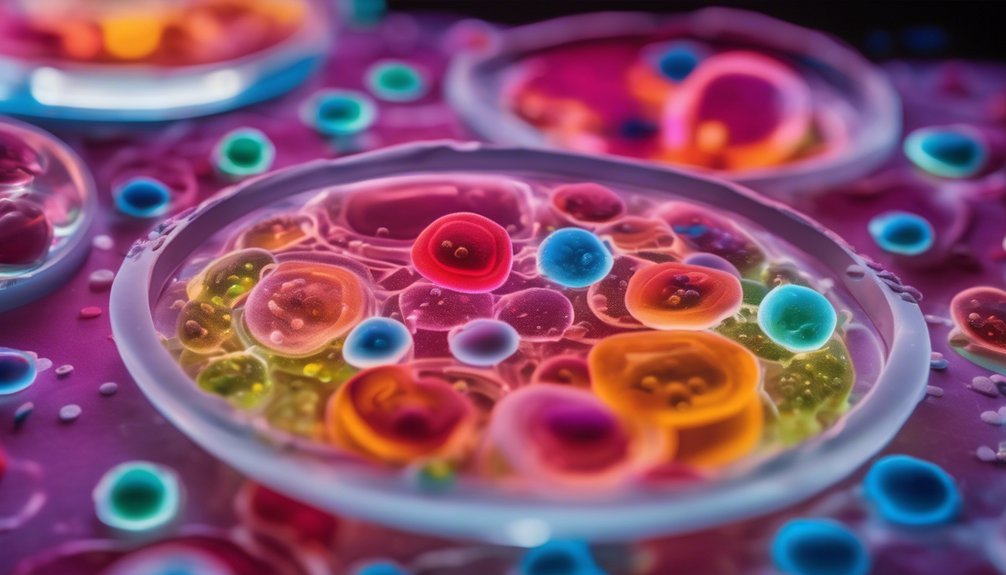
When you consider the challenges of chemotherapy, understanding P-glycoprotein‘s role in drug resistance becomes crucial.
P-glycoprotein (P-gp) functions as a membrane transporter that actively expels various chemotherapeutic agents from cancer cells, thereby diminishing their intracellular concentrations. This efflux limits the efficacy of chemotherapy, leading to treatment failure in many patients.
Recognizing how P-gp modulates drug absorption and retention is vital for developing strategies to enhance chemotherapy efficacy. By targeting P-glycoprotein, either through inhibitors or alternative therapeutic approaches, you can potentially overcome resistance and improve patient outcomes.
Ultimately, addressing P-glycoprotein’s impact on drug resistance is essential for optimizing treatment regimens and serving those affected by cancer more effectively.
Mechanisms of Multidrug Resistance in Cancer Cells
Although various factors contribute to the phenomenon of multidrug resistance (MDR) in cancer cells, the interplay between altered drug transport mechanisms and cellular changes plays a pivotal role.
Key mechanisms include modifications in drug transport proteins, particularly P-glycoprotein, which enhance efflux, reducing drug accumulation. Additionally, genetic mutations may alter protein expression, impacting cancer metabolism and promoting resistance.
Modifications in drug transport proteins and genetic mutations significantly contribute to cancer cells’ resistance to chemotherapy.
Cellular signaling pathways can also be hijacked, leading to adaptations that circumvent therapeutic targets. These changes create a complex network that hampers effective drug delivery, ultimately diminishing the efficacy of chemotherapy.
Understanding these mechanisms is crucial for developing strategies to overcome MDR, ensuring that therapies can be optimized to restore sensitivity in resistant cancer cells and improve patient outcomes.
The Impact of P-gp on Ivermectin Efficacy
The role of P-glycoprotein (P-gp) in drug resistance isn’t limited to traditional chemotherapeutics; it also significantly impacts the efficacy of ivermectin, a drug primarily known for its antiparasitic properties.
P-gp can hinder ivermectin absorption by actively transporting it out of cells, reducing its bioavailability and therapeutic effectiveness. This mechanism poses challenges, particularly in targeting resistant parasites.
To enhance ivermectin’s efficacy, co-administration with P-gp inhibitors may be a viable strategy. These inhibitors can increase drug concentrations in target tissues, potentially improving outcomes.
Understanding this interaction is crucial for healthcare professionals aiming to optimize treatment regimens and effectively serve patients, particularly those requiring ivermectin for resistant infections.
Addressing P-gp’s role is essential for maximizing ivermectin’s therapeutic potential.
Strategies to Overcome P-gp Mediated Drug Resistance
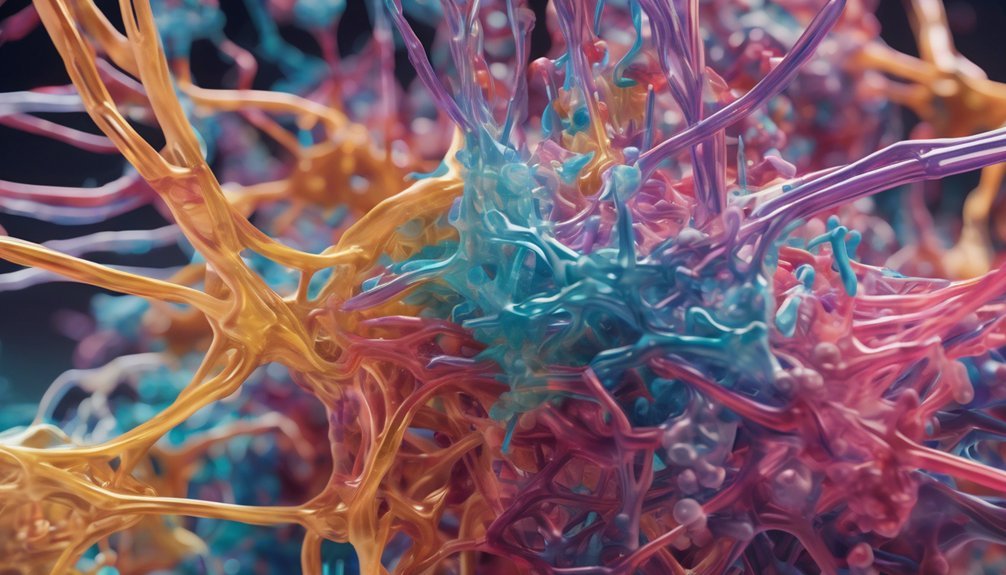
To effectively combat P-glycoprotein (P-gp) mediated drug resistance, researchers and clinicians are exploring several strategies that enhance drug efficacy.
One promising approach involves employing P-gp inhibitors to block the efflux mechanism, allowing more drugs to accumulate within cancer cells.
Combination therapies can also synergize treatment regimens, using different mechanisms to overcome resistance.
Personalized medicine, guided by resistance biomarkers, enables tailored drug formulations to target specific patient profiles.
Additionally, optimizing drug scheduling can improve therapeutic windows, mitigating resistance development.
Nanoparticle delivery systems offer innovative routes to enhance bioavailability and minimize P-gp interactions.
Potential of Ivermectin Repurposing in Cancer Treatment
While many traditional cancer therapies focus on targeting rapidly dividing cells, researchers are increasingly recognizing the potential of repurposing existing drugs like ivermectin for oncology applications.
Ivermectin repurposing offers a novel approach to cancer therapy by leveraging its unique mechanisms, such as inhibiting the P-glycoprotein (P-gp) pump, which often contributes to multidrug resistance.
Ivermectin repurposing presents a groundbreaking strategy in cancer therapy by targeting multidrug resistance mechanisms.
By disrupting these resistance pathways, ivermectin can enhance the efficacy of conventional chemotherapeutics, potentially leading to improved outcomes for patients.
Additionally, its safety profile, established through years of use in other contexts, provides a compelling case for its integration into cancer treatment regimens.
This innovative strategy not only aims to overcome chemotherapy failure but also to expand therapeutic options for those in need.
Future Directions in Combating Multidrug Resistance in Oncology
As researchers continue to unravel the complexities of multidrug resistance (MDR) in oncology, innovative strategies are emerging that target the underlying mechanisms contributing to treatment failure.
You’ll find that novel therapies are being developed, including gene editing techniques that enhance drug sensitivity.
Combination treatments are gaining traction, leveraging immune modulation to improve efficacy.
Personalized medicine is transforming patient care, tailoring therapies based on genetic profiles.
Additionally, nanotechnology applications are revolutionizing targeted delivery systems, ensuring drugs reach their intended sites with minimal off-target effects.
Ongoing clinical trials are critical in validating these approaches, paving the way for more effective interventions.
Frequently Asked Questions
What Are the Side Effects of Ivermectin in Cancer Patients?
Ivermectin side effects in cancer patients can include nausea, dizziness, fatigue, and skin reactions. You should monitor these cancer patient reactions closely, as they may differ based on individual health conditions and concurrent treatments.
How Does Diet Influence P-Glycoprotein Activity?
Diet significantly impacts P-glycoprotein activity, affecting nutrient absorption. By choosing specific nutrients, you can potentially enhance or inhibit this pump’s function, thereby influencing drug efficacy and overall health outcomes in patients undergoing treatment.
Can P-Glycoprotein Levels Be Tested in Patients?
Yes, p-glycoprotein testing can be conducted in patients, allowing healthcare providers to monitor levels effectively. This testing aids in understanding drug interactions and optimizing treatment plans tailored to individual patient needs.
Are There Alternative Treatments to Ivermectin for Chemotherapy Resistance?
When considering alternatives to ivermectin for chemotherapy resistance, explore natural remedies and targeted therapies. These options can enhance treatment efficacy and provide a holistic approach, promoting healing while minimizing adverse effects for patients in need.
How Do Genetics Affect Individual Responses to P-Glycoprotein Inhibitors?
Genetic polymorphisms significantly influence your response to P-glycoprotein inhibitors by altering drug metabolism. Variations in genes can affect how well these inhibitors work, leading to differences in treatment efficacy and safety for individuals.
Conclusion
In navigating the complexities of P-glycoprotein and multidrug resistance, you’re not just facing challenges—you’re uncovering opportunities. By exploring innovative strategies and repurposing existing treatments like ivermectin, you can enhance therapeutic efficacy and restore the hope of successful outcomes. Embracing personalized medicine and advanced drug delivery systems could well be the key to unlocking a brighter future in oncology and parasitology. Together, these approaches can transform hurdles into stepping stones for more effective therapies.
